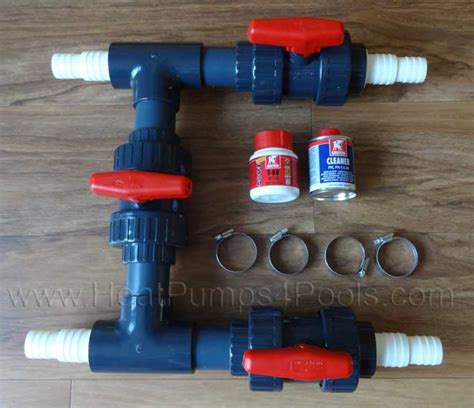Above Ground Pool Pump: Filter Bypass – Understanding When and How to Use It
Maintaining a sparkling clean above-ground pool requires a reliable filtration system. The heart of that system? Your pool pump. But sometimes, you might need to bypass your filter. This article will explain when and how to use the filter bypass on your above-ground pool pump, ensuring you keep your pool clean and your equipment in top shape.
What is a Filter Bypass?
A filter bypass is a valve or switch that allows water to circulate through your pool pump without passing through the filter. Essentially, it creates a shortcut. While it might seem counterintuitive to avoid filtering your pool water, there are specific situations where bypassing the filter is necessary and even beneficial.
When Should You Bypass Your Pool Filter?
There are several scenarios where bypassing your filter becomes necessary:
1. Backwashing or Cleaning Your Filter:
This is the most common reason. To effectively clean your filter (whether sand, cartridge, or DE), you need to reverse the flow of water. This process, called backwashing, removes trapped debris. During backwashing, the filter needs to be bypassed to prevent damage to the filter and pump. Your pool pump's manual will provide precise instructions on how to properly backwash your specific filter type.
2. Winterizing Your Pool:
Before winter, you'll need to drain your pool's plumbing lines to prevent damage from freezing. Bypassing the filter allows you to effectively drain the system, ensuring all water is removed from the pump and filter.
3. Troubleshooting Pump Problems:
If your pool pump is struggling to run or making unusual noises, bypassing the filter can help identify the source of the problem. If the pump operates smoothly with the filter bypassed, the issue likely lies within the filter itself (clogged, damaged, etc.).
4. Adding Chemicals:
While not always necessary, some pool chemicals, particularly those that are highly concentrated, might benefit from being directly added to the pool water before filtration. Bypassing the filter can facilitate more even chemical distribution before the pump begins circulation. Always follow the instructions on your chosen chemical.
5. Initial Startup After Filter Cleaning/Replacement:
After cleaning or replacing a filter, it's often recommended to run the pump with the filter bypassed for a short period to remove any loose debris or sand that may have gotten into the system. This minimizes the risk of clogging the newly cleaned/replaced filter.
How to Bypass Your Above Ground Pool Filter:
The method for bypassing your filter varies depending on your pump and plumbing setup. There isn't a universal approach.
Common Methods:
-
Multiport Valve: Many above-ground pool systems use a multiport valve. This valve has several settings, including "backwash," "rinse," "filter," and often a "bypass" setting. Simply turn the valve to the "bypass" position to divert water flow around the filter.
-
Separate Bypass Valves: Some systems include separate valves that allow you to shut off the flow to the filter while maintaining water circulation through the pump. Locate these valves and close them off.
-
Manual Switch (Less Common): Rarely, some systems might have a manual switch that directly controls the filter bypass function. Refer to your pump's manual for instructions.
Always consult your pool pump's instruction manual. This is crucial. Improperly bypassing your filter can damage your equipment. The manual will provide specific diagrams and instructions tailored to your particular model.
What Happens When You Bypass the Filter?
When you bypass your filter, the water circulates through the pump and back into the pool without being cleaned. This means that any debris and contaminants will remain in the water. Only use the bypass function for short periods, as necessary for the reasons outlined above. Always return your filter to its normal "filter" position as soon as the bypass operation is complete.
Can I Leave the Filter Bypassed for Extended Periods?
No. Leaving the filter bypassed for extended periods will result in a cloudy, dirty, and potentially unhealthy swimming environment. Your water will quickly become contaminated with debris, algae, and bacteria.
By understanding when and how to use the filter bypass function, you can maintain your above-ground pool effectively and keep your equipment functioning optimally. Remember to always consult your pool pump's manual for specific instructions and safety precautions.

